'Old England is dying', once wrote Mike Scott of The Waterboys.
Time of death yet to be established, but it is fair to say, that in footballing terms, the antidote to a nation’s on-field woes has kicked in a lot faster than expected.
But first. Let's travel back two years.
England lost 2-1 to Iceland to miss out on a quarter-final slot at Euro 2016. A shock perhaps but based on the nation’s history at major tournaments over the past 28 years, no one was surprised.
The remedy to the country’s woes failed to instil immediate confidence, however, as the English FA appointed Sam Allardyce to lead the nation to the 2018 World Cup.
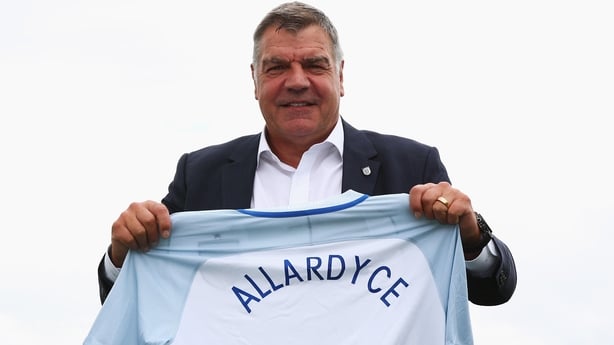
Again it was no real surprise when Big Sam was gazumped by a media sting, which cost the one-time Limerick manager his dream job.
And so began a series of quite fortunate events that have taken England to the verge of the World Cup final.
The powers that be turned to Gareth Southgate, in the interim, and the new man’s low profile approach soon gathered momentum as England sat atop their group table, unbeaten with 10 points from four games played.
The former Middlesbrough and Aston Villa defender had passed the on-pitch test, but was tasked with a much tougher assignment before his official tenure even began, as Wayne Rooney showed up at a wedding reception late into the night, still sporting his England training gear.
The England captain, whether mischievously or not, had handed the rookie coach a major problem while still in the caretaker role, but Southgate dealt with the situation, firstly with the media in the build-up to the imminent friendly against Spain.
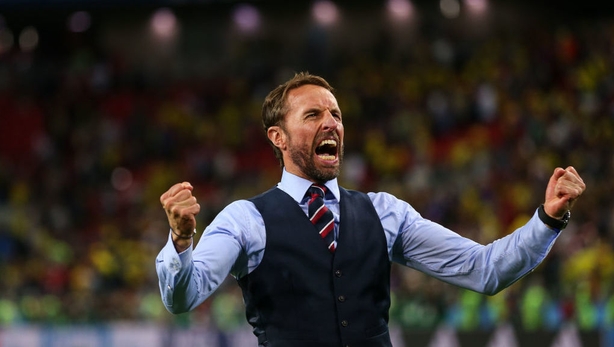
And then, more importantly, behind closed doors with the Football Association, as the 57-time capped England international interviewed for the permanent position.
By August of the following year, Southgate had kept England top of their table and conjured up the retirement of Rooney from international football.
England’s Mr Nice was getting results both on and off the pitch and Rooney’s departure would fire a warning shot to other senior players.
With qualification wrapped up and Southgate firmly established in the top job, 'Old England' appeared to lose the will to fight on as the World Cup loomed large.
Russia 2018 would happen. Nothing remarkable was expected. The circus would, no doubt, resume once England were eliminated. It was only a matter of time.
Southgate had other ideas, and upon qualification, the manager set about building a squad in his own image to take to Russia.
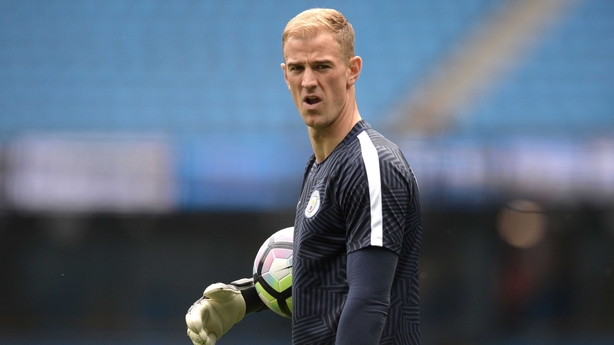
More big players would be cast adrift, most notably Joe Hart, as Southgate paid close attention to what was going on in club land.
The England coach had the gumption to also leave creative and established England stalwarts like Jack Wilshere at home, while he enjoyed the confidence to bring both young and uncapped players into the final 23, with Burnley goalkeeper Nick Pope and Liverpool defender Trent Alexander-Arnold making the final squad.
The remaining big-name players in Southgate’s squad were known more for what they were doing on the pitch rather than their antics off it.
"For the first time in a long time, there was nothing to talk about except football"
And when the English media tried to cause a furore over a player’s leg tattoo, without much joy, you got the impression that Southgate had won the battle.
For the first time in a long time, there was nothing to talk about except football.
All of England’s 23-man squad plied their trade in the top tier in England last season, yet many have taken the road less travelled to arrive at that particular destination.
Jordan Pickford’s journey took the goalkeeper away from his parent club back in 2012 to Darlington, Alfreton Town, Burton Albion, Carlisle United, Bradford City and Preston North End before returning to finally cement his place in a poor Sunderland side that was relegated from the Premier League in 2017.
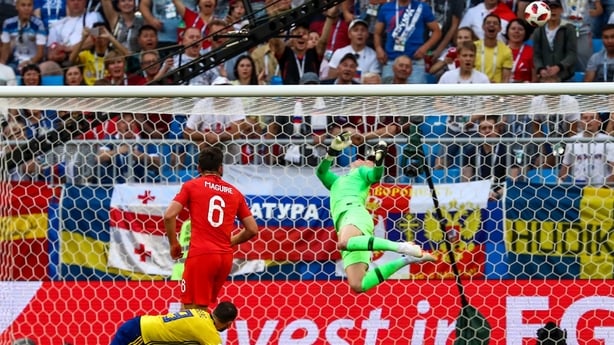
Pickford was shortlisted for PFA Young Player of the Year but despite rumours of Liverpool interest was never likely to get a move to one of the big six in the Premier League.
A switch to Everton would suffice to keep the shot-stopper in the top flight and while the club’s season was far from ideal, Pickford performed heroics between the sticks to cement his place in the World Cup squad.
Pickford had just three international caps coming into the tournament, and while not really tested in the opening two games, there was a small amount of criticism thrown his way for the Belgium goal he conceded in the final group match.
But the 24-year-old has epitomised the team that Southgate built with some extraordinary shot-stopping displays in both knock-out matches – his final-minute save from Mateus Uribe in the Colombia clash will go down as one of the all-time best England saves, already spoken in the same terms of Gordon Banks’ spectacular effort to deny Pele in 1970.
Kieran Trippier is another who took the loan-route to the top as he could not make an impact at Manchester City but worked his way through three loan spells at Barnsley before signing for Totteham via Burley.
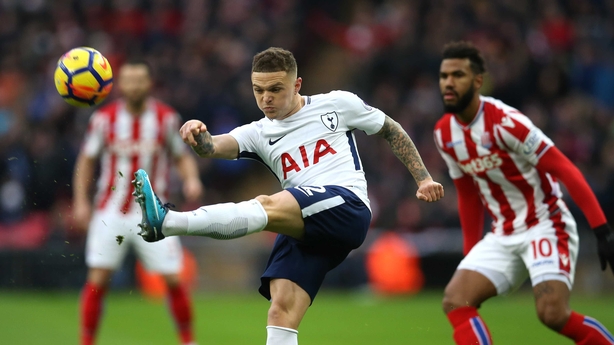
Even upon his arrival at White Hart Lane, Trippier had to play understudy to Kyle Walker ahead of his big money move to Manchester City.
The two players now sit side by side in the starting XI and for every Walker, England has an equivalent Trippier, as Leicester’s Harry Maguire sits alongside Man City’s John Stones, while Dele Alli was playing League 1 football with MK Dons in recent years, and Ashley Young had to literally re-invent himself over the past couple of seasons at Old Trafford.
And while far-from a collective of mis-fits, the Southgate squad contains many other players who have had to leave their parent club to find first-team football or are struggling to get consistent game-time at the big clubs.
Ruben Loftus-Cheek played 22 times for Chelsea in three years but a loan move to Crystal Palace threw him into England contention, while the midfielder has also worked with Southgate at Under-21 level.
So Southgate has somehow managed to blend this eclectic mix of players into a true band of brothers where openness and mutual respect appear to be traits that have established internal relationships while putting on a united front for those looking in from the outside.
And the faith that Southgate has shown these player is already reaping dividends, as the team are clearly playing for the manager, and have bought into his philosophy and approach at this World Cup.
And so it began.
Southgate had been brave, and as fortune tends to favour those who embrace such attributes, England were not only handed a very favourable qualifying group, but would also face Tunisia and Panama in their opening games.
England’s hand was shown in those matches as they set out with three at the back with Jordan Henderson the only holding midfielder.
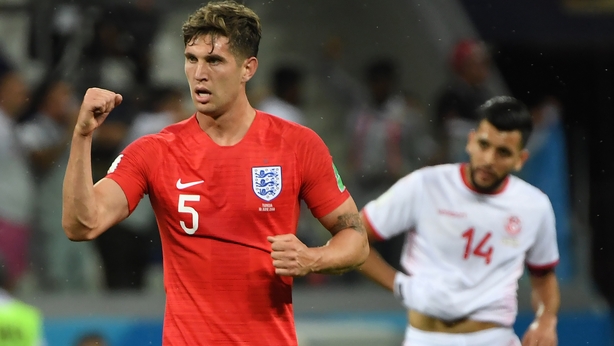
The system looked far from convincing in the victory against Tunisia but the first 30 minutes of the game showed what this England side could achieve if they could play to their potential.
The defensive side of their game was rarely called into action as Southgate had put belief and trust into that back three to play out from the back, hold a high line and force the advanced ball players and wingbacks into attack mode from the off.
Questions were asked in the second half against Tunisia and England were perhaps a little lucky to grab all three points, but Southgate persevered and was blessed to have had a much easier task in the next game, as they took on Panama.
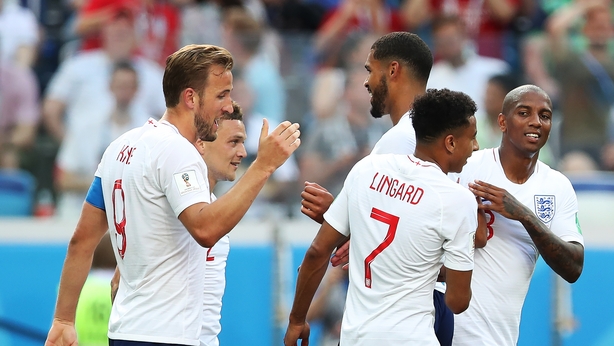
Again, the same formation and tactics were employed, this time to devastating effect as they bamboozled the Central American side with every aspect of their game clicking into place.
With a place in the knock-out phase assured, the Belgium game proved perfect for Southgate to hand valuable World Cup experience to his extended squad while also knowing that even a defeat could create positive spin as it would place England in the easier side of the draw.
England’s fortune would continue into the knock-out phases.
With the benefit of hindsight, Colombia’s last-minute equaliser would prove a real blessing in disguise as it allowed England to banish their World Cup penalty-shootout hoodoo en route to the quarter-finals.
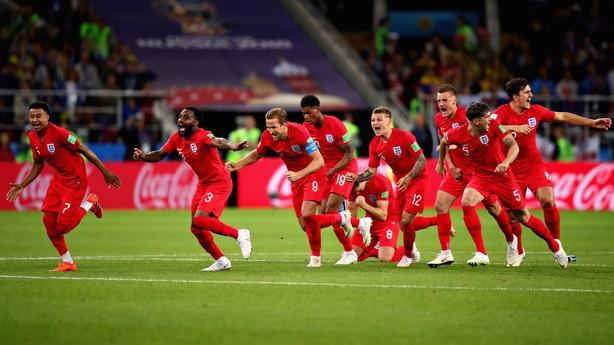
But throughout the game, England’s energy and application rendered Colombia’s free-flowing football redundant, and when Southgate’s side did get their noses ahead – again perhaps fortuitously with a penalty decision that could have just as easily been a free out – his assembled soldiers had the fight to put up with the ensuing physical battle that took the game to extra time and beyond.
There was nothing fortuitous about their victory over Sweden as England played to their potential throughout and totally outplayed the hard-working Scandinvians, while penetrating their stubborn defence on two occasions.
England have, however, relied on set-pieces throughout the tournament and have a remarkable record in that department, most notably how many headed goals they have managed from corner kicks.
Some club teams will go an entire season without scoring from a corner kick so for England to have bagged two against Tunisia, one against Panama and another against Sweden as a result of towering headers, combined with three penalties in similar scenarios, it does suggest they are enjoying a lucky streak at this tournament.
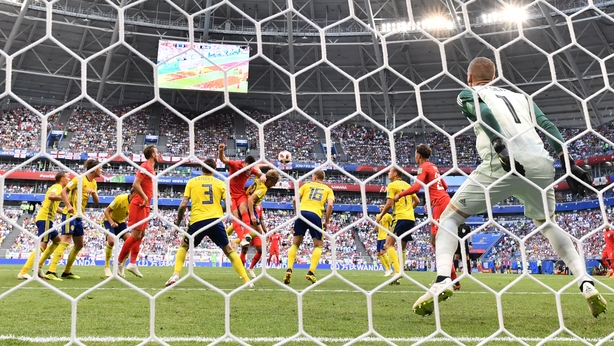
But can England play to their potential once more and get past Croatia to book their place in this year’s showpiece – a World Cup final against France awaits the winners.
Southgate’s side have certainly exceeded expectations by playing at their optimum to reach the semi-finals, and yet the same cannot be said about Croatia.
Zlatko Dalic’s side appeared to put in the complete performance when they out-fought and then out-classed Argentina in the group stages, however, Croatia have only performed in patches in both of their knock-out games.
Denmark took the game to Croatia in the second half and all the way to penalties, while Russia sat back allowing Croatia to have the ball in the quarter-finals yet the creativity was missing with only Luca Modric showing throughout.
Southgate’s side are now just one performance away from taking their place in the World Cup final, however, the only negative aspect of their fascinating campaign is that sections of their media and elements of their supporters are still struggling to let go of that old-England mentality with jingoistic headlines still appearing in print, while songs of the Empire’s ‘glory’ still ring around the stadiums.
"Still he sings an Empire's song,
Still he keeps his navy strong,
And he sticks his flag where it ill belongs,
Old England is dying"
The final nail may be hammered home by the grandson of an Irish immigrant.
It may not be coming home this time, but a place in the final could certainly put that particular world in motion.


